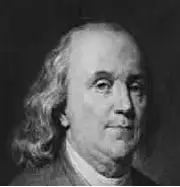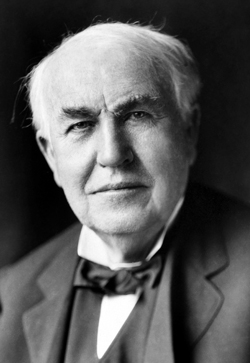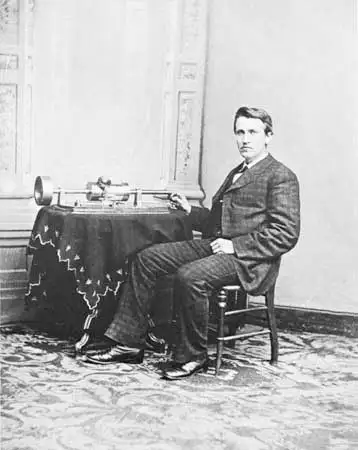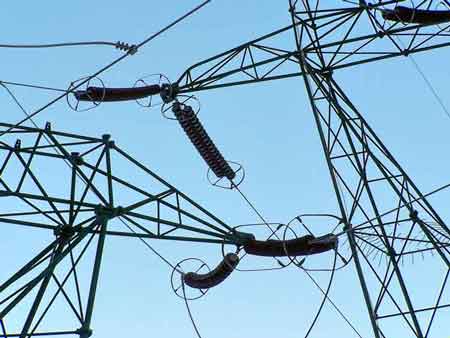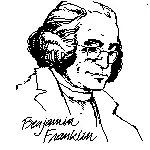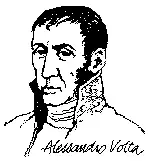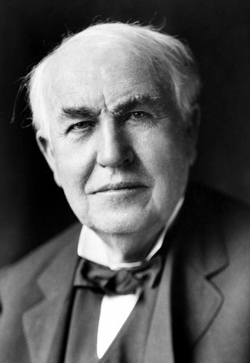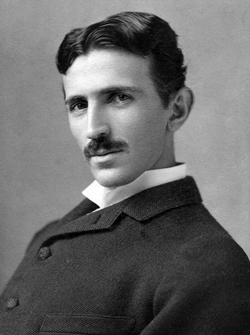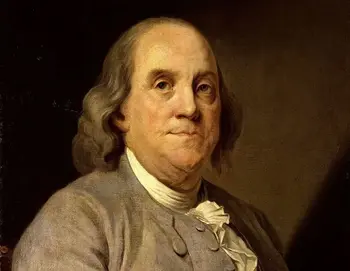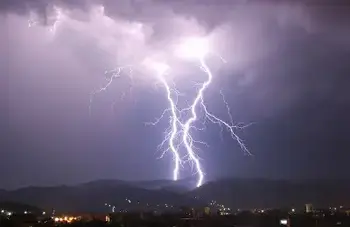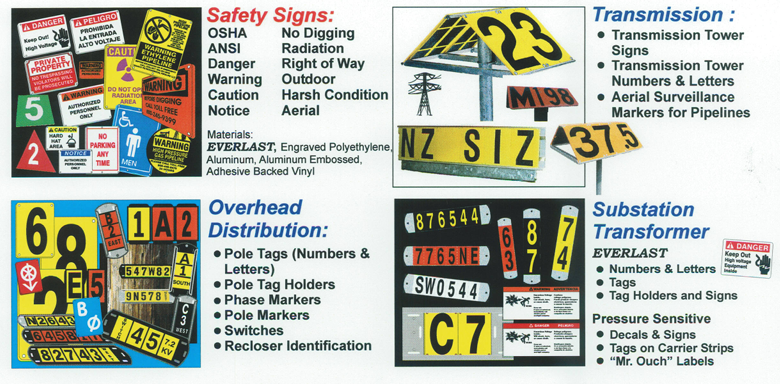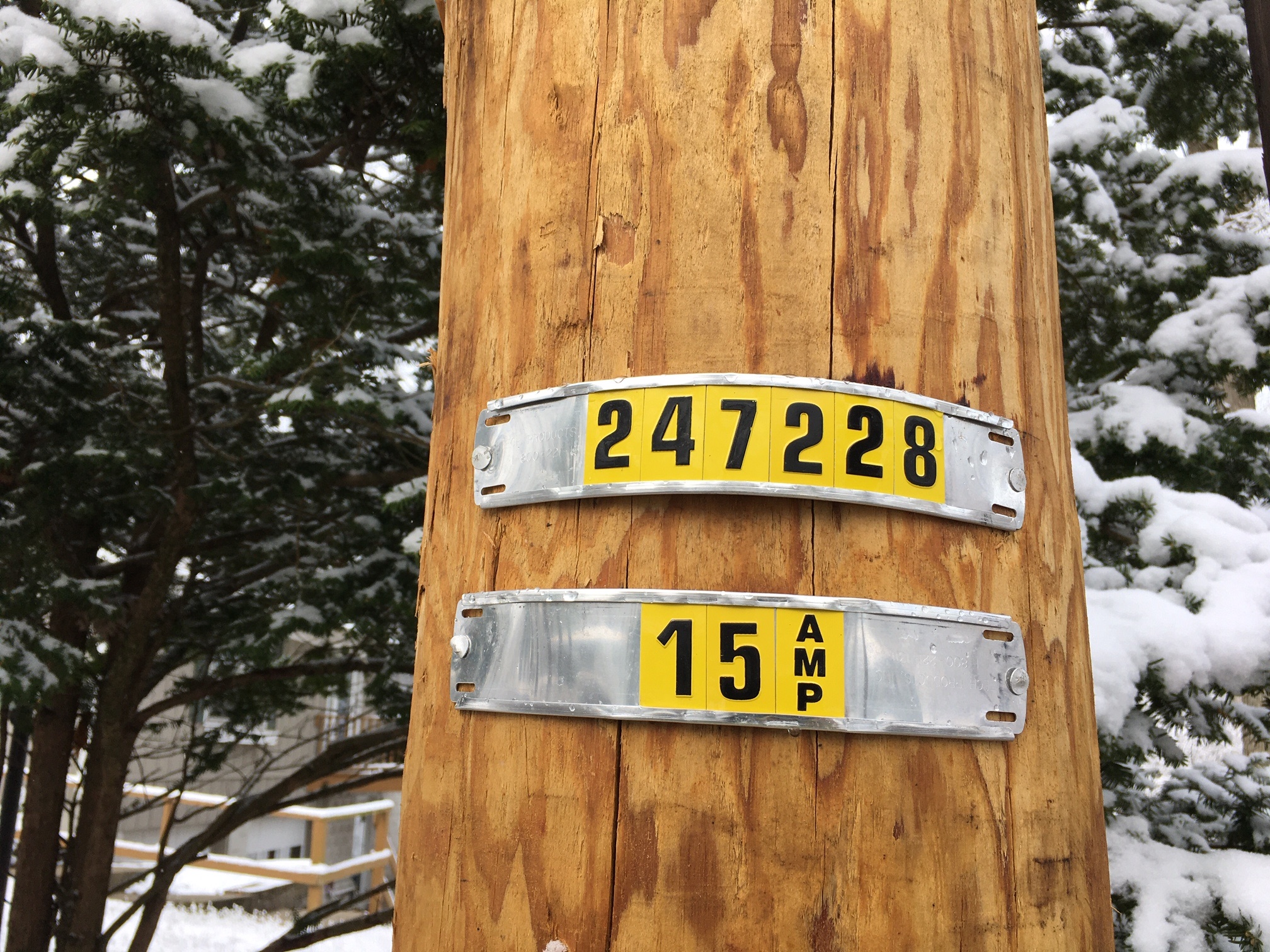Electricity wasn’t invented, but discovered over centuries. Key contributors include Franklin (lightning), Volta (battery), Faraday (magnetism), and Tesla (AC power). Modern electricity is the result of many scientific advances in understanding and harnessing electrical energy. Learn more about the history of electricity and how it powers our modern world.
Who Invented Electricity?
Electricity wasn’t invented—it was discovered and developed over centuries. Early pioneers such as Benjamin Franklin, Alessandro Volta, Michael Faraday, and Nikola Tesla each contributed key breakthroughs in understanding and harnessing electrical energy, leading to the electric power systems we rely on today.
✅ Electricity was discovered, not invented—developed through centuries of scientific progress.
✅ Key figures include Franklin (lightning experiments), Volta (battery invention), and Tesla (AC power).
✅ Modern electricity is a result of combined discoveries in electrical theory and engineering.
Many people think Benjamin Franklin invented electricity with his famous kite-flying experiments in 1752. Franklin is famous for tying a key to a kite string during a thunderstorm, proving that static electricity and lightning were indeed the same thing. However, that isn’t the whole story of electricity. Benjamin Franklin’s experiments with lightning helped shape early ideas of static electricity, eventually linking it to natural electrical phenomena.
Ancient Observations to Scientific Discovery
The roots of electrical knowledge date back over 2,500 years. Around 600 BC, the Greek philosopher Thales of Miletus observed that rubbing amber with fur caused it to attract light objects—an early description of static electricity. But real scientific progress didn’t begin until the 17th century.
In 1600, English scientist William Gilbert conducted systematic studies on magnetic and electric forces. He coined the term electricity from the Greek word elektron (amber) and is often called the father of modern electricity.
Soon after, Otto von Guericke developed one of the first machines to generate static electricity using a rotating sulfur globe. Over the next decades, scientists across Europe improved these devices, setting the stage for real experimentation.
Who Was Benjamin Franklin and What Did He Discover?
Electricity was not “discovered” at all. Electricity has always been a part of nature, in the form of static electricity, discharging to the earth, in the form of lightning, or when rubbing two electrically charged materials. In fact, the truth is that “electricity” in the form of electric power was invented when it was discovered that electricity could be generated in an electrical generator and then transmitted as an electrical current through wires. Necessity is the mother of invention, they say, and it is just as true in the case of electricity. When it comes to the “invention of electricity”, people wanted a cheap and safe way to light their homes, and scientists thought electricity might be a way. The foundation of our modern understanding of what is electricity was laid over centuries by pioneers like Franklin, Volta, Faraday, and Tesla.

Benjamin Frankin
When it comes to the invention of electricity or the discovery of energy power, it is actually a long story spanning a considerable amount of time. Through scientific investigation, electrical technology evolved from each experiment. Electrical light is a common phenomenon in the modern world, often in the form of lightning, but the question of who invented electricity is actually about the discovery of electricity. Electricity was common in the natural world, but electric power was the result of an experiment.
Electricity Discoveries and Inventions
| Year |
Contributor |
Breakthrough |
| 600 BC |
Thales of Miletus |
Observed static electricity by rubbing amber—earliest recorded observation. |
| 1600 |
William Gilbert |
Coined the term "electricity"; studied electric and magnetic properties. |
| 1660 |
Otto von Guericke |
Built the first electrostatic generator using a sulfur ball. |
| 1745 |
Pieter van Musschenbroek |
Invented the Leyden jar, an early capacitor that stored static charge. |
| 1752 |
Benjamin Franklin |
Proved lightning is electrical via kite experiment; advanced static theory. |
| 1786 |
Luigi Galvani |
Discovered bioelectricity through frog leg experiments. |
| 1800 |
Alessandro Volta |
Invented the voltaic pile—the first true battery generating continuous current. |
| 1820–1831 |
Ørsted, Ampère, Faraday |
Discovered electromagnetism; Faraday invented the first electric generator. |
| 1873 |
James Clerk Maxwell |
Developed equations describing the electromagnetic field. |
| 1879 |
Thomas Edison |
Invented a practical incandescent light bulb with a long-lasting filament. |
| 1887 |
Nikola Tesla |
Developed the AC (alternating current) power system and Tesla Coil. |
| 1895 |
Guglielmo Marconi |
Used electromagnetic waves to pioneer wireless telegraphy (radio). |
From the writings of Thales of Miletus, it appears that Westerners knew as long ago as 600 B.C. that amber becomes charged by rubbing. There was little real progress until the English scientist William Gilbert in 1600 described the electrification of many substances and coined the term electricity from the Greek word for amber. As a result, Gilbert is called the father of modern electricity, and in 1660, Otto von Guericke invented a crude machine for producing static electricity.
It was a ball of sulphur, rotated by a crank with one hand and rubbed with the other. Successors, such as Francis Hauksbee, made improvements that provided experimenters with a ready source of static electricity. The development of electrical components like the capacitor and resistor played a vital role in turning raw discoveries into usable technology. Today's highly developed descendant of these early machines is the Van de Graaf generator, which is sometimes used as a particle accelerator. Robert Boyle realized that attraction and repulsion were mutual and that electric force was transmitted through a vacuum. Stephen Gray distinguished between conductors and nonconductors. C. F. Du Fay recognized two kinds of electricity, which Benjamin Franklin and Ebenezer Kinnersley of Philadelphia later named positive and negative.
Progress quickened after the Leyden jar was invented in 1745 by Pieter van Musschenbroek. The Leyden jar stored static electricity, which could be discharged all at once. In 1747, William Watson discharged a Leyden jar through a circuit, and comprehension of the current and circuit started a new field of experimentation. Henry Cavendish, by measuring the conductivity of materials (he compared the simultaneous shocks he received by discharging Leyden jars through the materials), and Charles A. Coulomb, by expressing mathematically the attraction of electrified bodies, began the quantitative study of electricity.
A new interest in electric current began with the invention of the battery. Luigi Galvani had noticed (1786) that a discharge of static electricity made a frog's leg jerk. Consequent experimentation produced what was a simple electron cell using the fluids of the leg as an electrolyte and the muscle as a circuit and indicator. Galvani believed the leg supplied electricity, but Alessandro Volta disagreed, and he constructed the voltaic pile, an early type of battery, as proof. Continuous current from batteries paved the way for the discovery of G. S. Ohm's law, which relates current, voltage (electromotive force), and resistance, as well as J. P. Joule's law of electrical heating. Ohm's law and the rules discovered later by G. R. Kirchhoff regarding the sum of the currents and the sum of the voltages in a circuit are the fundamental principles for making circuit calculations. The invention of devices such as the voltmeter and multimeter enabled precise measurement and control of electric current, pushing experimental science into practical engineering. Today’s understanding of electricity also depends on key principles, such as Ohm’s Law, which relates voltage, current, and resistance, concepts derived from the foundational work of 19th-century physicists.
A Different Kind of Power: The Battery
Learning how to produce and use electricity was not an easy task. For a long time, there was no dependable source of electricity for experiments. Finally, in 1800, Alessandro Volta, an Italian scientist, made a great discovery. He soaked paper in salt water, placed zinc and copper on opposite sides of the paper, and watched the chemical reaction produce an electric current. Volta had created the first electric cell.
By connecting many of these cells together, Volta was able to “string a current” and create a battery. It is in honour of Volta that we rate batteries in volts. Finally, a safe and dependable source of electricity was available, making it easy for scientists to study electricity.

Alessandro Volta
Michael Faraday and the Invention of the Electric Generator
An English scientist, Michael Faraday, now known for Faraday's Law, was the first one to realize that an electric current could be produced by passing a magnet through a copper wire. It was an amazing discovery. Almost all the electricity we use today is generated in giant power plants using magnets and coils of copper wire. Both the electric generator and electric motor are based on this principle. A generator converts motion energy into electricity. A motor converts electrical energy into motion energy.
In 1819, Hans Christian Oersted discovered that a magnetic field surrounds a current-carrying wire. Within two years, André Marie Ampère had formulated several electromagnetic laws in mathematical terms, D. F. Arago had invented the electromagnet, and Michael Faraday had devised a rudimentary form of electric motor. Practical application of a motor had to wait 10 years, however, until Faraday (and earlier, independently, Joseph Henry) invented the electric generator with which to power the motor. A year after Faraday's laboratory approximation of the generator, Hippolyte Pixii constructed a hand-driven model. From then on, engineers took over from the scientists, and a slow development followed; the first power stations were built 50 years later. Alessandro Volta’s invention of the battery introduced the world to electrical energy as a usable, stored source of power.

Michael Faraday
In 1873, James Clerk Maxwell started a different path of development with equations that described the electromagnetic field, and he predicted the existence of electromagnetic waves travelling at the speed of light. Heinrich R. Hertz confirmed this prediction experimentally, and Marconi first utilized these waves in the development of radio (1895). John Ambrose Fleming invented (1904) the diode rectifier vacuum tube as a detector for the Marconi radio. Three years later, Lee De Forest transformed the diode into an amplifier by adding a third electrode, marking the beginning of electronics. Theoretical understanding became more complete in 1897 with the discovery of the electron by J. J. Thomson. In 1910–11, Ernest R. Rutherford and his assistants learned the distribution of charge within the atom. Robert Millikan measured the charge on a single electron in 1913. Michael Faraday's discoveries with magnets and coils paved the way for the development of the electricity generator, a key component of modern power systems.
Thomas Edison and the Birth of Electric Lighting
Thomas Alva Edison is one of the greatest inventors of all time and is normally credited with inventing the light bulb (along with Nikola Tesla). He arrived in Boston in 1868. In Boston, he found men who knew something of electric current, and, as he worked at night and cut short his sleeping hours, he found time for study. He bought and studied Faraday's works. Presently came the first of his multitudinous inventions, an automatic vote recorder, for which he received a patent in 1868. This necessitated a trip to Washington, which he made on borrowed money, but he was unable to arouse any interest in the device. "After the vote recorder," he says, "I invented a stock ticker, and started a ticker service in Boston; had thirty or forty subscribers and operated from a room over the Gold Exchange." Edison attempted to sell this machine in New York, but he returned to Boston without success. He then invented a duplex telegraph by which two messages could be sent simultaneously, but at a test, the machine failed due to the assistant's incompetence.

Thomas Alva Edison
Penniless and in debt, Thomas Edison arrived again in New York in 1869. But now fortune favored him. The Gold Indicator Company was a concern that furnished its subscribers, via telegraph, with the current gold prices on the Stock Exchange. The company's instrument was out of order. By a lucky chance, Edison was on the spot to repair it, which he did successfully. This led to his appointment as superintendent at a salary of $300 a month. When a change in the ownership of the company led to his dismissal from the position he held, he formed, along with Franklin L. Pope, the partnership of Pope, Edison, Current, and Company, the first firm of electrical engineers in the United States.
Thomas Edison immediately set up a shop in Newark. He improved the system of automatic telegraphy (telegraph machine) in use at the time and introduced it to England. He experimented with submarine cables and developed a system of quadruplex telegraphy, in which one wire was used to perform the work of four. These two inventions were bought by Jay Gould, owner of the Atlantic and Pacific Telegraph Company. Gould paid 30,000 dollars for the quadruplex system but refused to pay for the automatic telegraph. Gould had bought the Western Union, his only competition. "He then," wrote Edison, "repudiated his contract with the automatic telegraph people, and they never received a cent for their wires or patents, and I lost three years of very hard labour. But I never harboured any grudge against him because he was so skilled in his line, and as long as my part was successful, the money was secondary to me. When Gould got the Western Union, I knew no further progress in telegraphy was possible, and I went into other lines."
In 1879, Thomas Edison focused on inventing a practical light bulb, one that would last a long time before burning out. The problem was finding a strong material for the filament, the small wire inside the bulb that conducts electricity. Finally, Edison used ordinary cotton thread that had been soaked in carbon. This filament didn’t burn at all— it became incandescent; that is, it glowed.
The next challenge was developing an electrical system that could provide people with a practical source of energy to power these new lights. Understanding an electrical circuit became essential as inventors like Edison and Tesla developed systems to power homes and cities. Edison wanted a way to make electricity both practical and inexpensive. He designed and built the first electric power plant capable of producing electricity and distributing it to people’s homes.
Edison’s Pearl Street Power Station started up its generator on September 4, 1882, in New York City. About 85 customers in lower Manhattan received enough power to light 5,000 lamps. His customers paid a lot for their electricity, though. In today’s dollars, the electricity costs $5.00 per kilowatt-hour! Today, electricity costs approximately 12.7 cents per kilowatt-hour for residential customers, about 11 cents for commercial customers, and around 7 cents per kilowatt-hour for industrial customers.
The War of Currents: Tesla vs Edison
The turning point of the electric age came a few years later with the development of AC (alternating current) power systems. Croatian scientist Nikola Tesla, commonly known as the father of wireless electricity, came to the United States to work with Thomas Edison. After a falling out, Tesla discovered the rotating magnetic field and developed the alternating current electrical system, which is used widely today. Tesla teamed up with engineer and businessman George Westinghouse to patent the AC system and provide the nation with power that could travel long distances – a direct competition with Thomas Edison’s DC system. Tesla later went on to form the Tesla Electric Company, invent the Tesla Coil, which is still used in science labs and in radio technology today, and design the system used to generate electricity at Niagara Falls.

Nikola Tesla
Now using AC, power plants could transport electricity much farther than before. While Edison’s DC (direct current) plant could only transport electricity within one square mile of his Pearl Street Power Station, the Niagara Falls plant was able to transport electricity over 200 miles! The famous battle between Edison’s DC system and Tesla’s AC innovation is central to the evolution of electric power systems and continues to shape how electricity is transmitted today.
Electricity didn’t have an easy beginning. While many people were thrilled with all the new inventions, some people were afraid of electricity and wary of bringing it into their homes. They were afraid to let their children near this strange new power source. Many social critics of the day viewed electricity as a means to a simpler, less hectic way of life. Poets commented that electric lights were less romantic than gaslights. Perhaps they were right, but the new electric age could not be dimmed.
In 1920, approximately 2% of U.S. energy was used to generate electricity. By 2025, with the increasing use of technologies powered by electricity, the figure was almost 40 percent.
Related Articles





